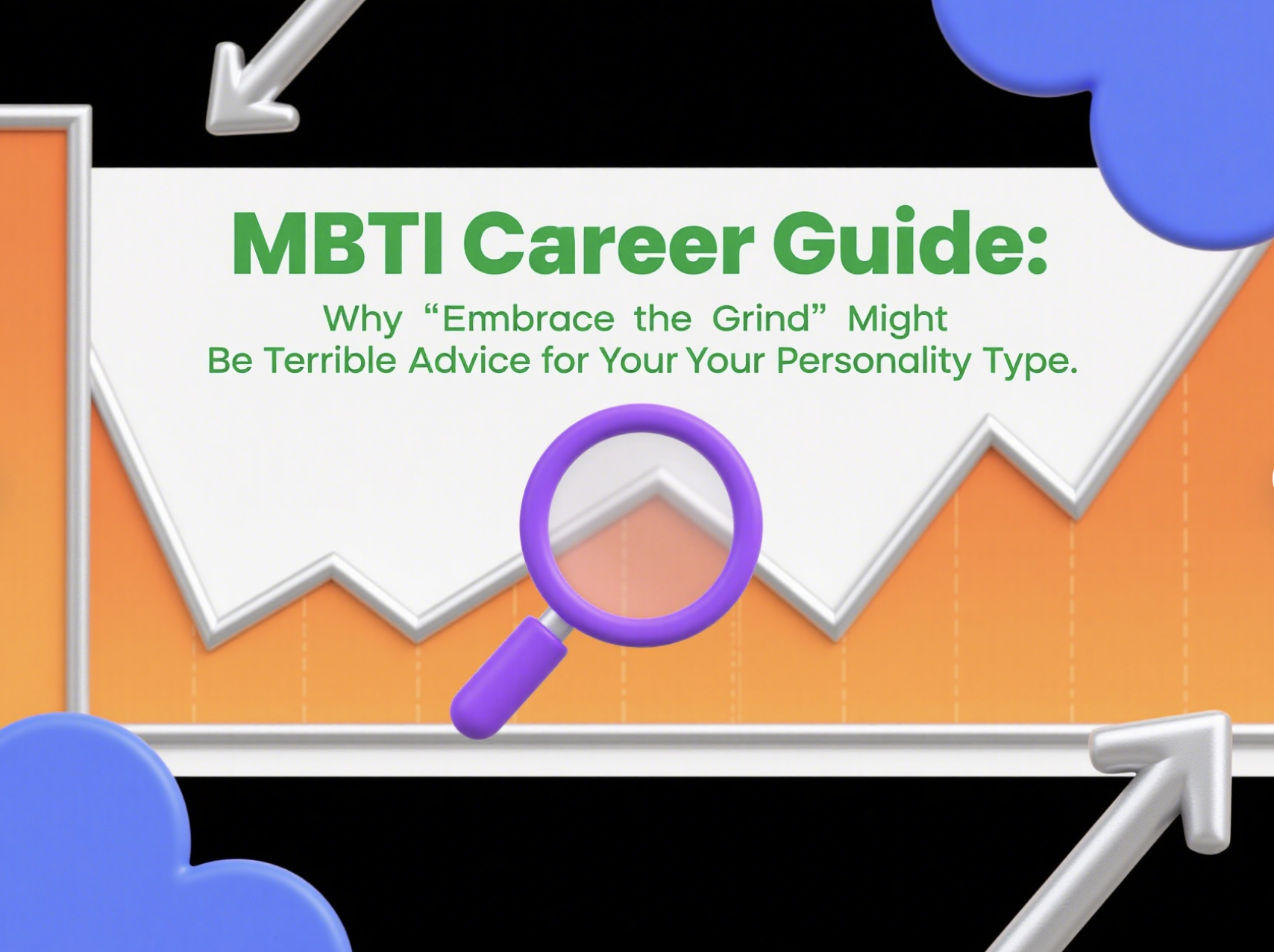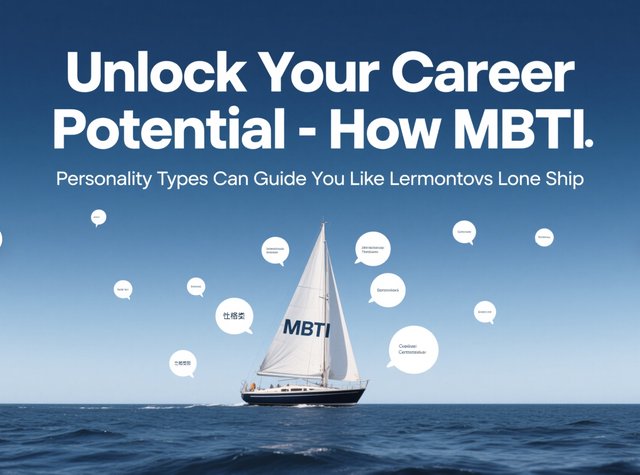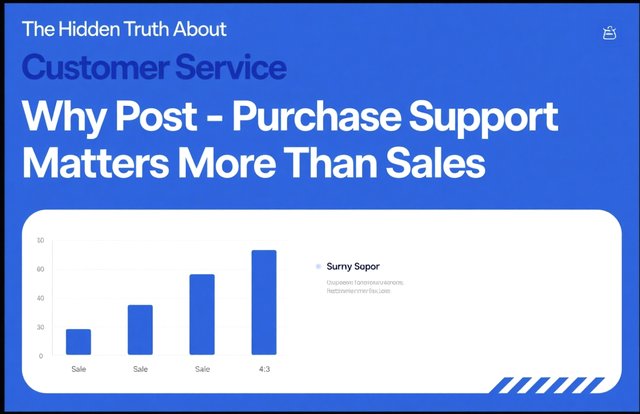MBTI Career Guide: Why ‘Embrace the Grind’ Might Be Terrible Advice for Your Personality Type

Why “Embrace the Grind” Might Be the Worst Advice for Your Personality Type
For decades, motivational mantras like “No pain, no gain” and “Adversity builds character” have dominated self-help literature. But what if this philosophy is fundamentally flawed—or worse, actively harmful—depending on your personality type? At ProMbti, we analyze career success through the lens of MBTI psychology, and one truth stands out: blindly accepting “the grind” can lead to burnout, misalignment, and wasted potential if it doesn’t align with who you are and what you truly want.
The Flawed Logic of Universal Struggle
The proverb “A sword’s edge is honed through grinding, and plum blossoms scent the air after bitter cold” sounds inspiring—until you ask:
What if you’re not a sword? (Not everyone thrives under pressure.)
What if you don’t want to be a sword? (Career goals vary wildly by personality.)
What if grinding just wears you down? (For some types, like INFPs or ISFPs, relentless stress erodes creativity.)
This one-size-fits-all mindset ignores critical nuances. An ESTJ might excel under high-pressure challenges, while an INFP could collapse under the same conditions. Worse, it’s often used to justify inequality (“They’re just being ‘tempered’ by life”) rather than addressing systemic barriers.The MBTI Lens: Not All Growth Requires Suffering
Know Your Type’s Strengths
- Analysts (NT types): INTJs and ENTPs may seek intellectual challenges but resent arbitrary hardship. For them, growth comes from mastery, not misery.
- Diplomats (NF types): INFJs and ENFPs need purpose. “Grinding” without meaning leads to disillusionment.
- Sentinels (SJ types): ISTJs and ESFJs value stability. Predictable, incremental growth beats chaotic struggle.
- Explorers (SP types): ISTPs and ESFPs thrive on adaptability. Rigid “no pain, no gain” rules stifle their spontaneity.
- Analysts (NT types): INTJs and ENTPs may seek intellectual challenges but resent arbitrary hardship. For them, growth comes from mastery, not misery.
Define Your Version of Success
- An ENTJ’s “grind” might be 80-hour workweeks toward a CEO role. An ISFP’s could be perfecting a painting—without external pressure.
- Key question: Is your effort aligned with your values (e.g., autonomy for INFPs, impact for ENFJs)?
- An ENTJ’s “grind” might be 80-hour workweeks toward a CEO role. An ISFP’s could be perfecting a painting—without external pressure.
When Grinding Backfires
For Feelers (F types): Chronic stress triggers decision paralysis.
For Perceivers (P types): Overstructured routines kill motivation.
Case study: A burned-out INTP forcing themselves into a high-stress sales job “for growth” may sabotage their natural problem-solving gifts.
A Better Framework: Strategic Growth
Instead of glorifying struggle, focus on:
Targeted challenges: An ESTP might volunteer for crisis management roles; an INFP benefits more from creative deadlines.
Recovery cycles: High-energy types (ESTPs, ENFJs) need rest to avoid depletion.
Alternative paths: Remote work suits introverts; freelancing fits perceivers.
The Takeaway
“Grind culture” isn’t inherently wrong—it’s just incomplete. True growth starts with self-awareness (hello, MBTI!), intentionality, and respecting how your personality thrives. Before accepting generic advice, ask:
- Does this align with my strengths?
- Will this help my long-term vision?
- Am I sacrificing well-being for someone else’s definition of success?
At ProMbti, we help you skip the pointless suffering and build a career that fits you—not outdated clichés. Because you’re not a sword. You’re a person—and your path should honor that.




